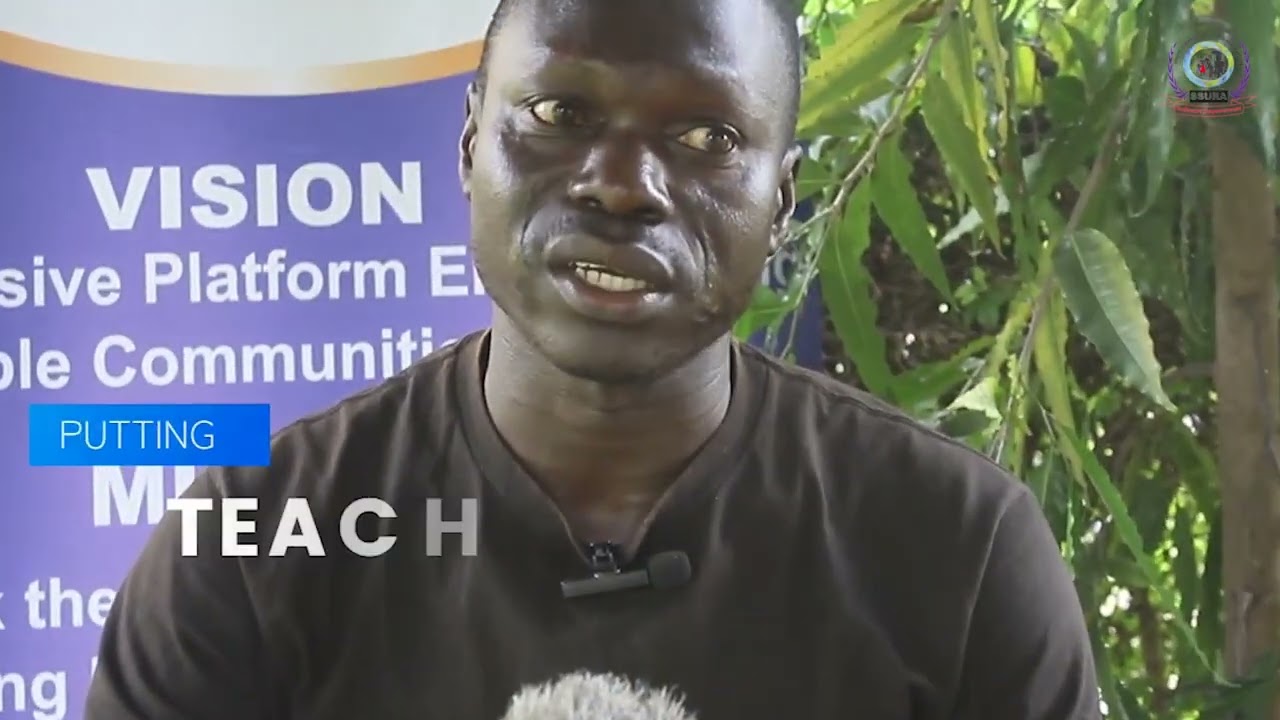Empowering Community Heroes: A Transformative Mental Health Training in Arua City
In the bustling city of Arua, Uganda, a groundbreaking initiative is taking shape to address the mental health challenges faced by refugees, host communities, and immigrants. Thanks to the generous support of Cities Alliance, the South Sudanese Refugee Association (SSURA) is implementing the "Enhancing Community Resilience through Gender Responsiveness" project.
The project, funded by Cities Alliance, aims to promote gender-responsive economic empowerment and psychosocial well-being within the fast-growing urban centers of Arua and Koboko in the West Nile region of Uganda.
Arua City's rapid urbanization has attracted a significant number of migrants and refugees, placing strain on public services and exacerbating the challenges faced by the local residents. Sectors such as health, education, water, and the environment have been impacted, leading to increased living costs and reduced access to basic services. To address these pressing issues, the project focuses on multiple objectives, with one key activity being "Enhance access to mental health services."
Under this activity, a three-day training program was recently conducted at the Arua Hotel, bringing together a diverse group of 30 school teachers, 15 parasocial workers, 15 community leaders, 11 health workers, and 8 community-based organizations (CBOs).
The training aimed to equip these professionals with the knowledge and skills to provide vital mental health and psychosocial support to individuals in need.
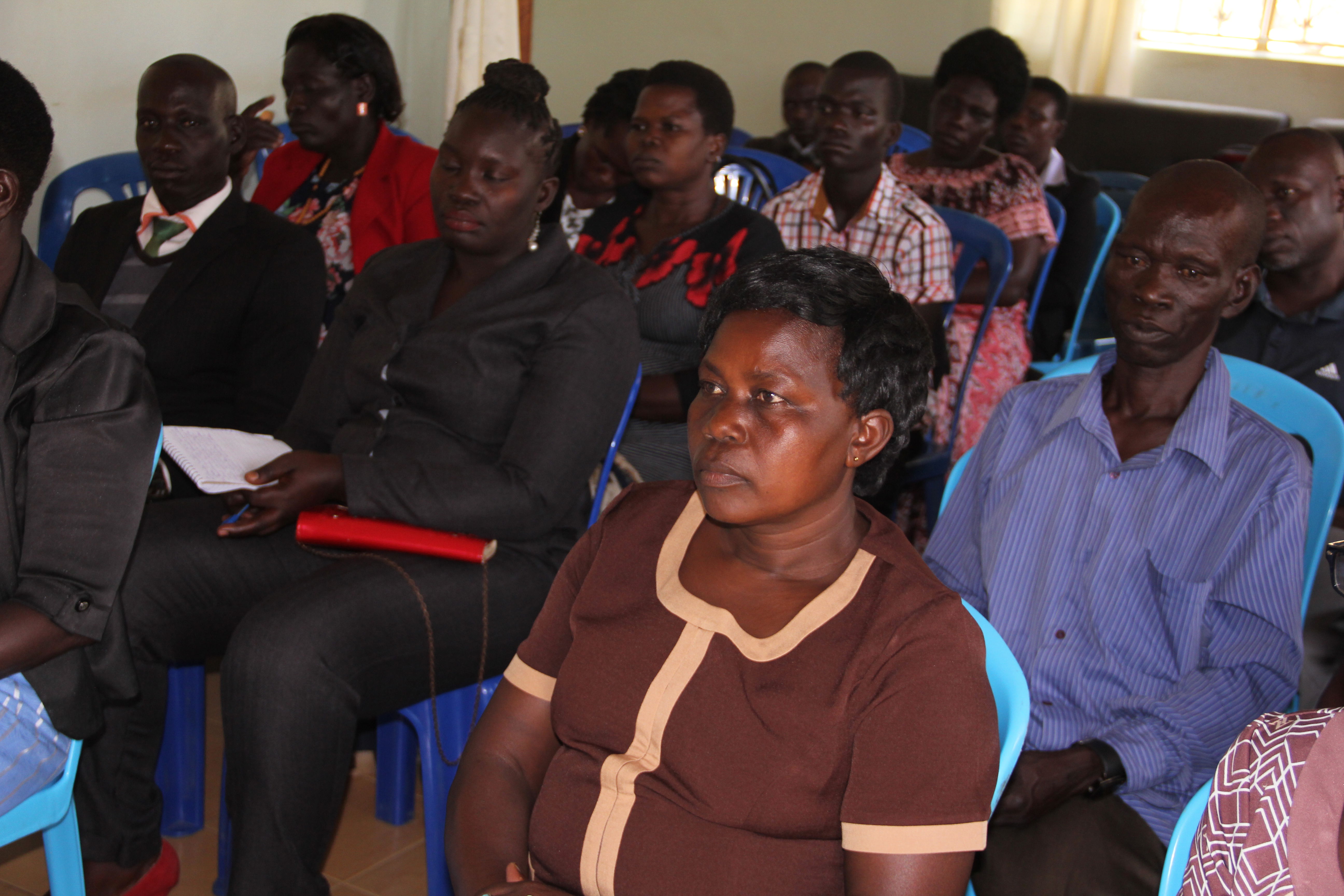
Attentive Participants Attending the Facilitator on Day One
The training curriculum, carefully designed by SSURA in conjunction with the consultant, covered crucial aspects, including mental health awareness, basic counseling skills, case management, and Psychological First Aid. Participants were also educated on referral pathways to ensure that individuals requiring specialized care could receive prompt assistance.
The three-day training program was structured strategically to deliver comprehensive content that would empower the participants effectively. On day one, the focus was on mental health and psychosocial support, laying the foundation for understanding the challenges faced by those seeking assistance. Day two delved deeper into guidance and counseling sessions, honing the participants' abilities to offer empathetic support to those in distress. Finally, on day three, the training covered psychological first aid, a vital tool to provide immediate support to individuals in crisis.
Day One: Mental Health and Psychosocial Support
The training kicked off with a day dedicated to mental health awareness and psychosocial support. Facilitators delved into the critical aspects of understanding mental health challenges and fostering empathy within the community. Through interactive sessions, participants learned to identify signs of mental distress, the importance of stigma reduction, and ways to offer non-judgmental support to those in need. By the end of the day, the teachers, parasocial workers, and health professionals had a deeper appreciation of the role they could play in building a more inclusive and compassionate environment.
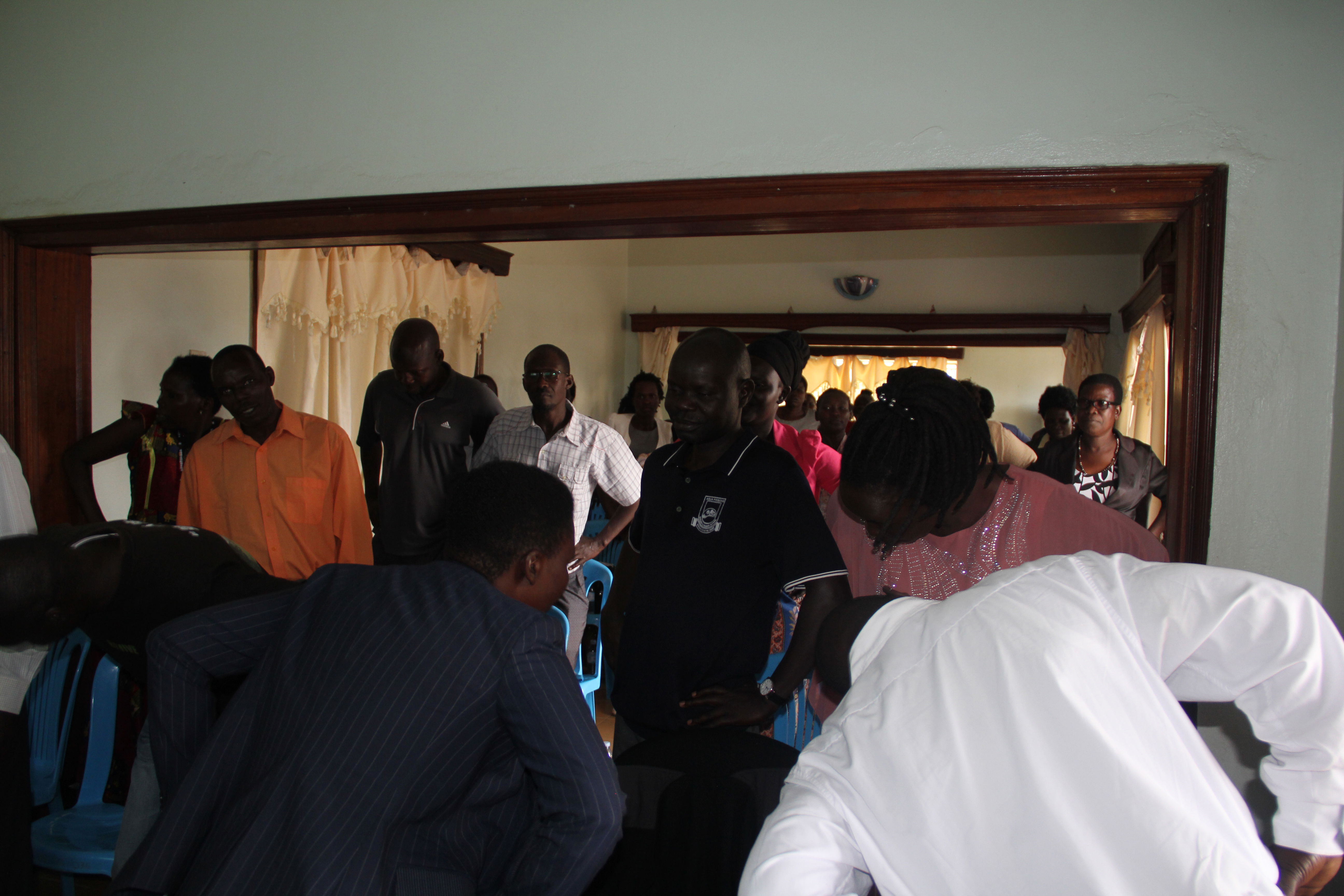
Participant-Led Energizer Session: An innovative and engaging Moment, Day Two
Day Two: Guidance and Counseling Sessions
On the second day of the training, the focus shifted to guidance and counseling skills. Recognizing that schools have a significant number of migrants and refugees, this session targeted teachers who often interact closely with the youth. Participants were trained in basic counseling techniques, active listening, and creating safe spaces for students to express themselves. Armed with these essential skills, the teachers were empowered to address emotional and psychological challenges effectively, promoting mental well-being in the school environment.
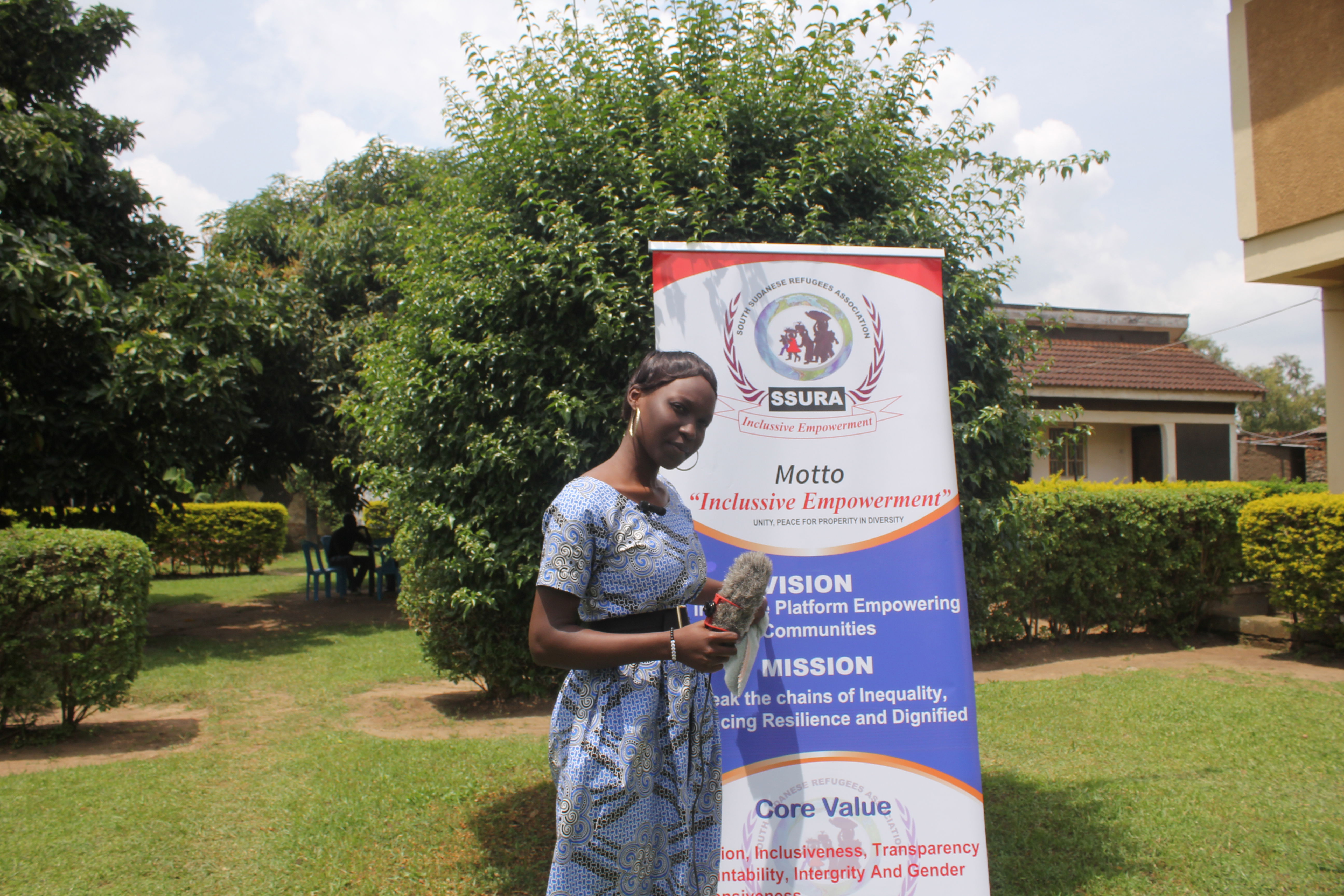
Mrs. Joan One of the participants, poses for a photo on Day 3.
Cue Joan IDI Speaking After The Training.mp3
Day Three: Psychological First Aid
The final day of the training brought attention to the crucial aspect of psychological first aid. Health workers and other professionals learned how to provide immediate support to individuals in crisis situations, such as those affected by trauma, violence, or natural disasters. Understanding the principles of psychological first aid equips these responders to be more effective and comforting in times of distress.
Promises for a Better Future
As the three-day training came to a close, the participants were brimming with enthusiasm and commitment to applying the knowledge and skills they had acquired. The teachers, parasocial workers, health professionals, community leaders, and CBO representatives pledged to integrate mental health and psychosocial support into their respective roles and responsibilities. This shared vision of fostering a more empathetic and supportive community promises a brighter and more resilient future for all.
Cue, Atiki Scovia - Para Social Worker.mp3
The facilitation approach employed was a blend of interactive and participatory methods, including Q&A sessions, presentations, group work, and lectures. This well-rounded strategy ensured that the participants actively engaged with the material, making the learning experience highly effective and impactful.
Mrs. Joan Oweru, a dedicated counselor and head of MHPSS at SSURA with a passion for improving mental health support in the community, is the driving force behind this noble initiative. Her vision and dedication have been recognized and supported by Mr. Gabriel Modi Batali, the Project Officer overseeing this transformative project.
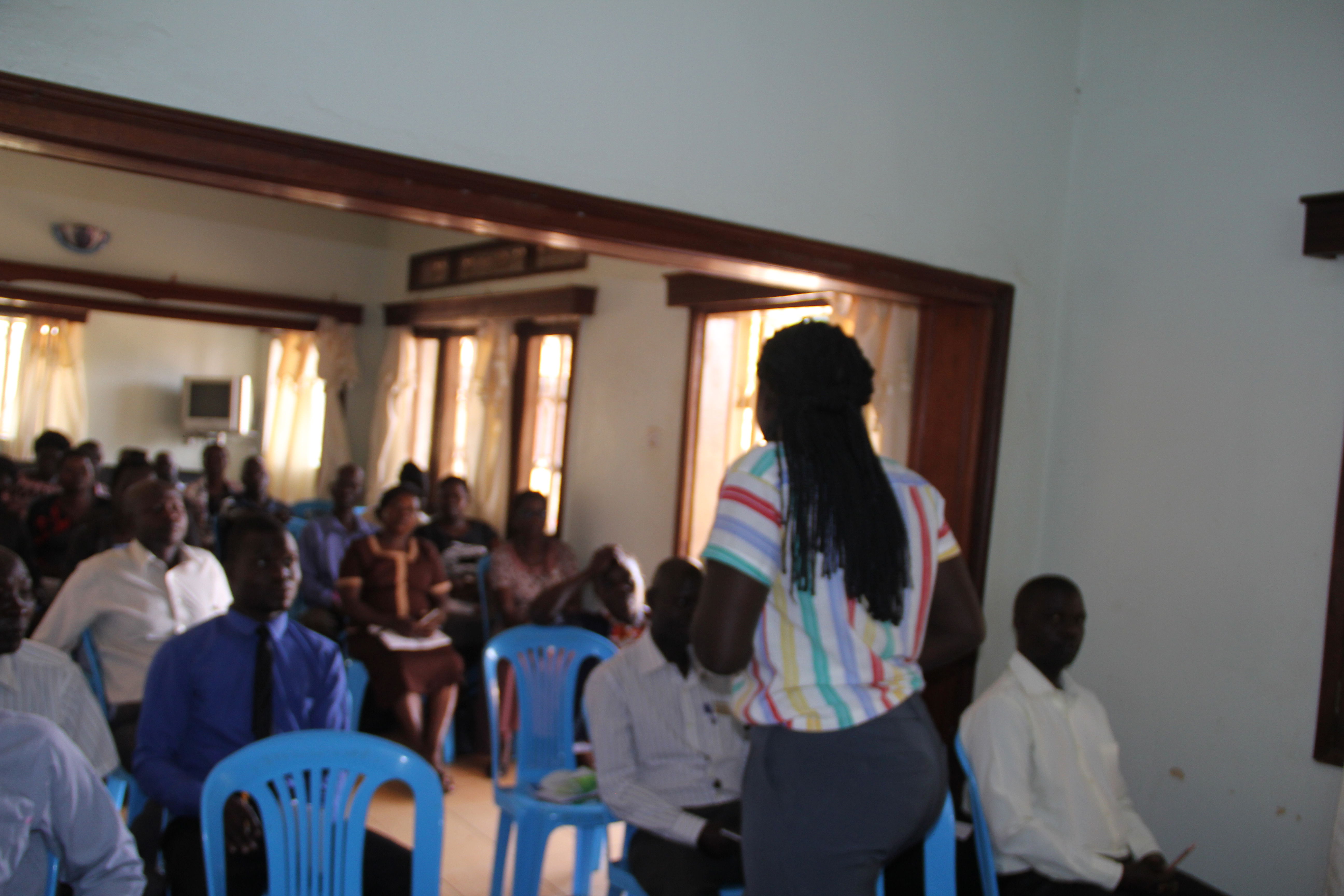
In Center: Mrs. Oweru Joan (Counsellor & Head Of MHPSS at SSURA) Addressing the Participants On Day One
The participants, eager to make a difference in their communities, hail from schools that have a high number of migrants and refugees. With the newfound knowledge and skills gained from the training, these community heroes pledged to apply the learned ideas into their work, fostering a more inclusive and empathetic environment.
As the project progresses, regular monitoring and evaluation will be conducted using attendance sheets, activity reports, and activity photos. These tools will help gauge the success of the program and provide valuable insights into areas that may require improvement or additional support.
The impact of this training program extends beyond the participants themselves. By enhancing access to mental health services in Arua and Koboko, the project aims to build stronger and more compassionate communities, ensuring that no one is left behind in the pursuit of a better life.
Arua City Mental Health and Psychosocial Support Training stands as a beacon of hope, demonstrating the power of collective efforts to make a positive change. With dedicated professionals equipped to provide crucial support, this project is sowing the seeds for a healthier and more resilient community in the face of challenges. The journey has just begun, but the path forward is one of empowerment, empathy, and transformation. Together, we can create a brighter future for Arua City and beyond
Together, let us foster a community where no one is left behind in the pursuit of a better life.
Click to Watch The Video: Three Days Wrap Up
Author: Aldo Adomati, -Communications Officer, SSURA
